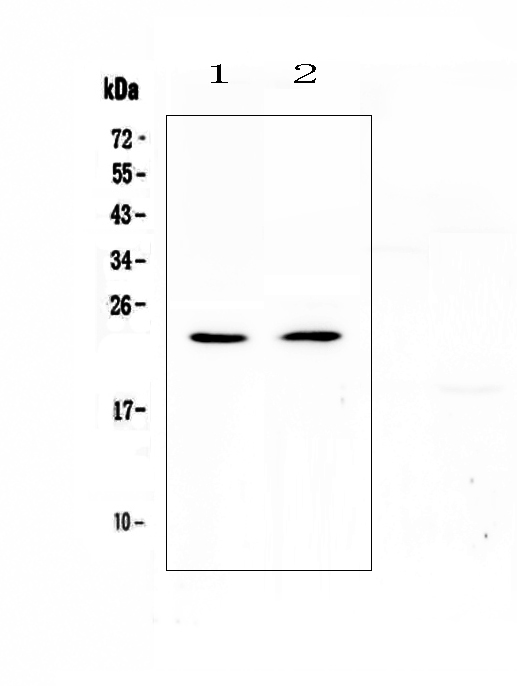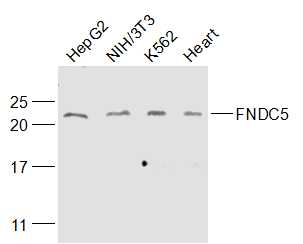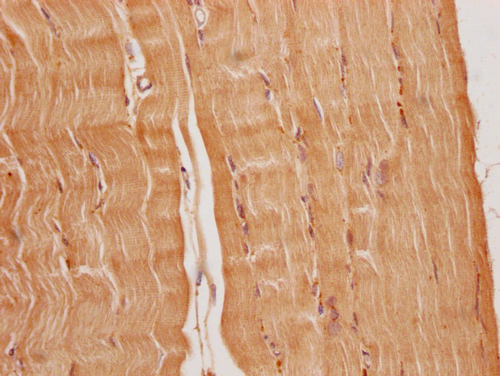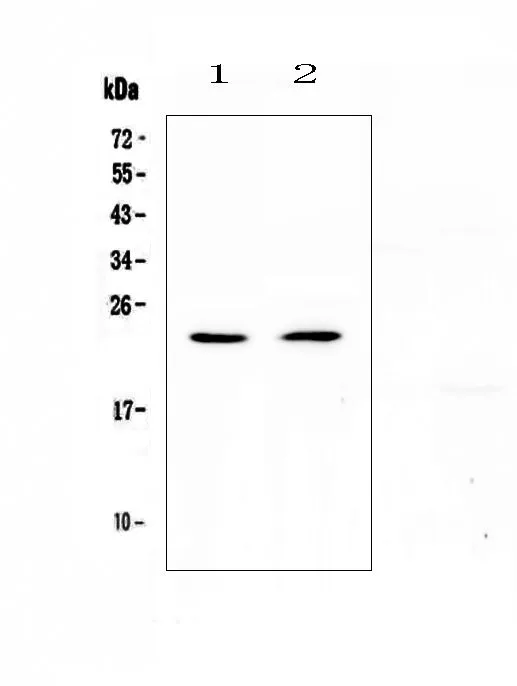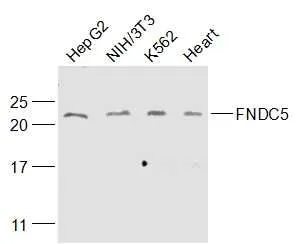
WB analysis of various sample lysates using GTX03463 FNDC5 antibody. Lane 1 : HepG2 whole cell lysate Lane 2 : NIH/3T3 whole cell lysate Lane 3 : K562 whole cell lysate Lane 4 : Mouse heart tissue lysate Dilution : 1:1000
FNDC5 antibody
GTX03463
ApplicationsWestern Blot
Product group Antibodies
ReactivityHuman, Mouse
TargetFNDC5
Overview
- SupplierGeneTex
- Product NameFNDC5 antibody
- Delivery Days Customer9
- Application Supplier NoteWB: 1:500-1:2000. *Optimal dilutions/concentrations should be determined by the researcher.Not tested in other applications.
- ApplicationsWestern Blot
- CertificationResearch Use Only
- ClonalityPolyclonal
- Concentration1 mg/ml
- ConjugateUnconjugated
- Gene ID252995
- Target nameFNDC5
- Target descriptionfibronectin type III domain containing 5
- Target synonymsFRCP2, irisin, fibronectin type III domain-containing protein 5, fibronectin type III repeat-containing protein 2
- HostRabbit
- IsotypeIgG
- Protein IDQ8NAU1
- Protein NameFibronectin type III domain-containing protein 5
- Scientific DescriptionThis gene encodes a secreted protein that is released from muscle cells during exercise. The encoded protein may participate in the development of brown fat. Translation of the precursor protein initiates at a non-AUG start codon at a position that is conserved as an AUG start codon in other organisms. Alternative splicing results in multiple transcript variants. [provided by RefSeq, Jun 2013]
- ReactivityHuman, Mouse
- Storage Instruction-20°C or -80°C,2°C to 8°C
- UNSPSC41116161

